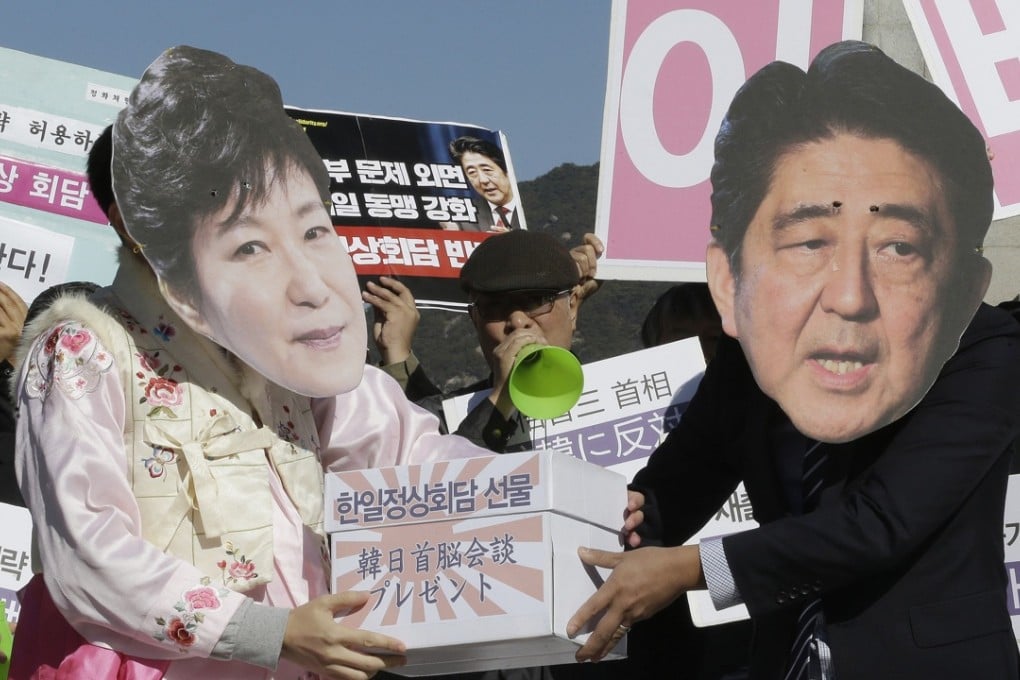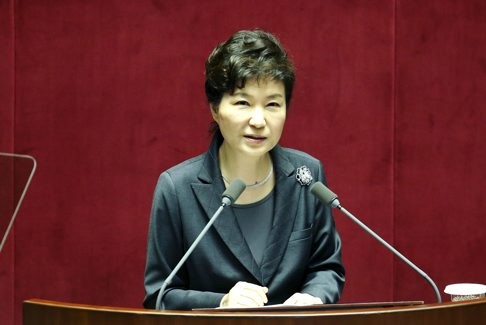History hangs heavy as South Korea’s Park Geun-hye prepares for summit with Japanese PM Shinzo Abe
The South Korean leader has sparked controversy domestically with a plan to rewrite textbooks while Abe brings his own historical baggage

“The correct way to raise our future generation is to instil in them pride in our country,” she said the following day.

The plan has sparked debate and protests by civic groups and opposition lawmakers. “A good president makes history,” said opposition leader Moon Jae-in. “A bad president makes history books.”
Many interpret the intervention by the conservative Park as an attempt to whitewash atrocities committed by right-wing forces and individuals during South Korea’s tumultuous recent history.
Information about massacres of leftists by Seoul forces before and during the 1950-53 Korean War was suppressed for decades. Only after left-wing governments won power in Seoul in 1998 and 2003 were those atrocities officially acknowledged.
